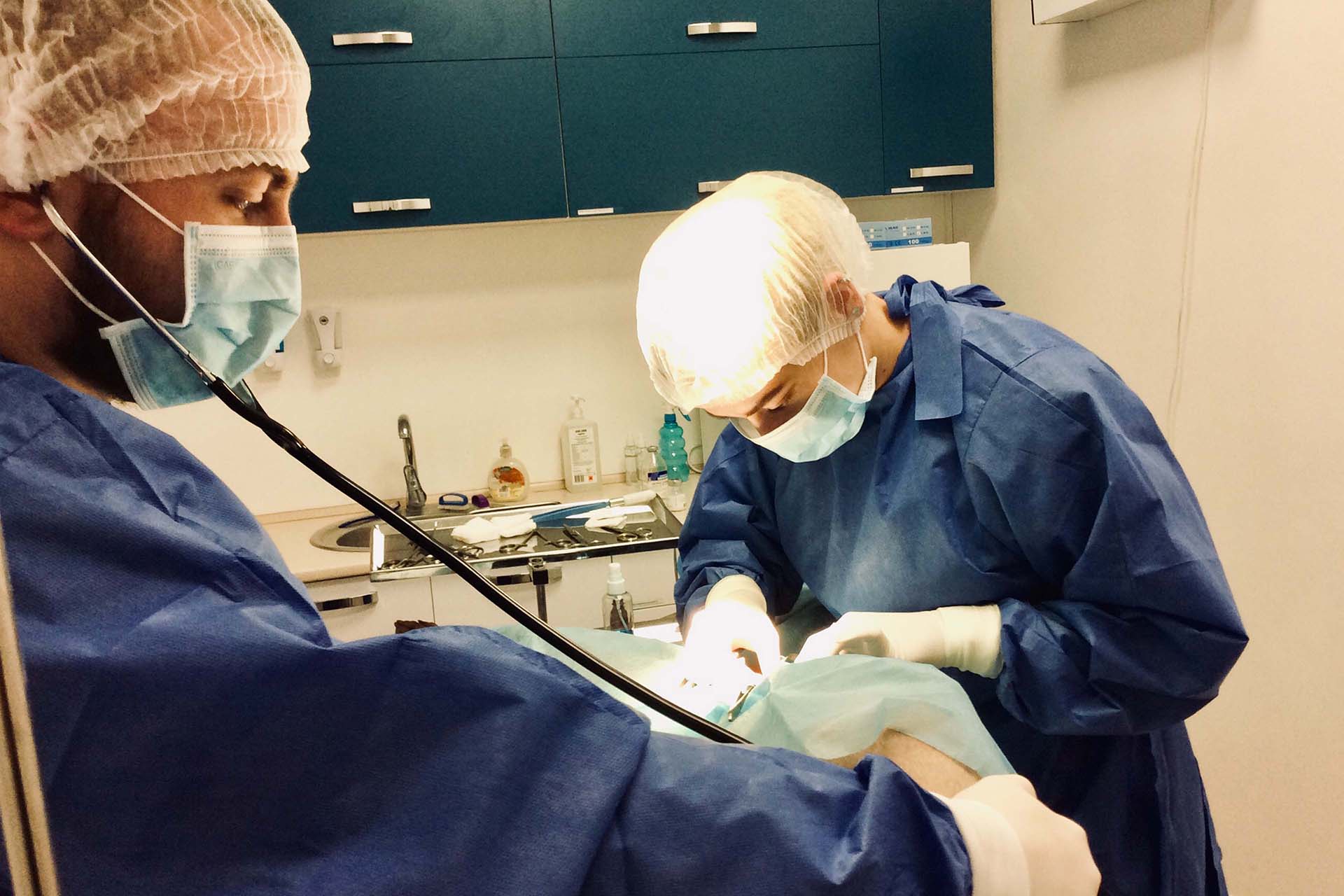Animal anesthesia at Veterinary Hospital Animal Clinic International
Not only surgeries, but also some dental procedures and hardware exams require the use of anesthesia. Anesthesia temporarily shuts down the patient's senses so he or she feels no pain.
The intensive care and anesthesia departments at our veterinary hospital are equipped with modern equipment and headed by experienced doctors. This approach allows us to carry out complex veterinary interventions with minimal risk to the health of the four-legged patient.
The professionals at Veterinary Hospital Animal Clinic International in Los Angeles know the ins and outs of various types of anesthesia. Veterinarians select substances according to the type of surgery and pet's medical history.
How do our specialists administer anesthesia?
Surgical interventions that some animals require are of a high degree of complexity. With this in mind, animal anesthesiology is a separate specialty of our veterinary clinic. The use of anesthesia and analgesia ensures that the intervention is carried out comfortably and safely for the pet:
- A deep sleep has occurred.
- There is no pain.
- Muscles are completely relaxed.
During the operation, the anesthesiologist monitors all vital signs of the animal. He monitors respiratory movements and heart rate. Monitoring of important indicators helps to maintain the body's normal vital signs.
The safety of the animal is our priority
The veterinary anesthesiologist at Veterinary Hospital Animal Clinic International in Los Angeles uses different groups of drugs to provide the animal with comprehensive anesthesia. The components are dosed in a balanced manner so that the patient does not experience any dose-dependent side effects.
Every owner should understand that notifying the veterinarian of a pet's medical conditions helps in selecting the right anesthesia regimen so that no harm is done to the pet's health. Pre-diagnosis is also important.
When the medications are finished, our anesthesiologist will continue to monitor the patient's physiological signs until the patient is fully awake. Usually 15 minutes after the procedure is sufficient for the animal to regain consciousness.
If your pet needs to be monitored for more time, we will recommend that he or she be placed in our special in-patient unit. If not, your four-legged friend can go home where you will help him or her recover by following the veterinarian's orders.


